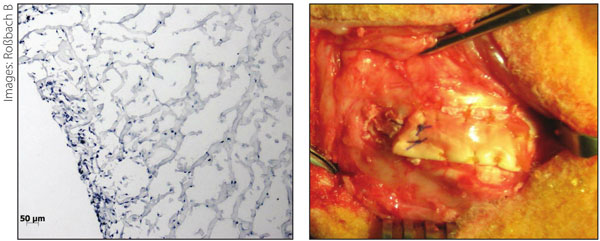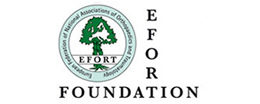Researchers at the University Hospital of Munich found that ab- sorbable collagen-based scaffolds seeded with autologous tenocytes can regenerate rotator cuff tendon tissue. This approach may lead to improved biomechanical outcomes in shoulders with rotator cuff tears, according to researchers who presented results at the EFORT Congress 2013 in Istanbul.
“We saw a superior biomechanical outcome with scaffolds seeded with these tenocytes in comparison to defect and scaffold alone,” Björn Roßbach, MD, said during the presentation.
“The biomechanical results are close to those of healthy tendons, but the scaffolds seeded with the autologous tenocytes perhaps need a longer time until the complete healing process takes place into the surrounding tissue and maybe an observation period of 6 or 12 months is necessary to find comparable values,” he said. Roßbach and colleagues won the Silver Free Paper Award at the Congress for presenting the second best free paper. (…)

Left: View of a light microscopy of a scaffold (100× magnification) colonized with autologous tenocytes.
Right: The researchers implanted the scaffolds in the hind legs of sheep.
Read the full article in the October 2013 issue of the EFORT OTE newsletter


